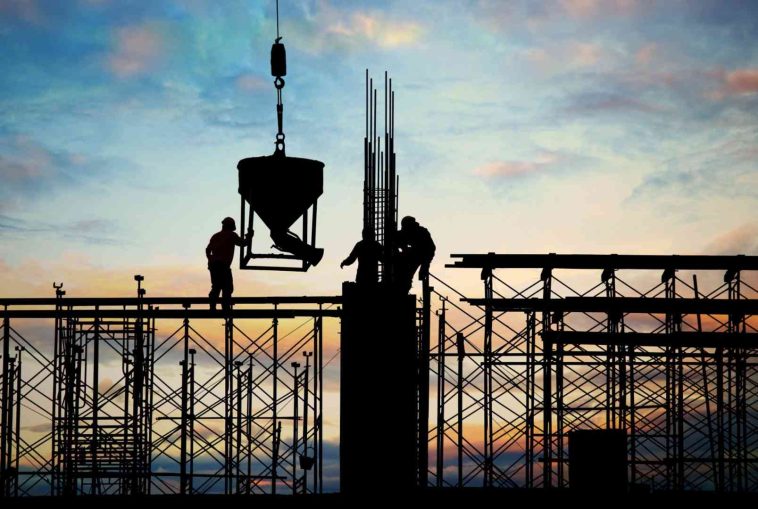Navigating the world of construction can be complicated enough without running into legal challenges. And if you’re in the construction business, it’s likely you’ve had a brush or two with the law—whether it’s about contracts, compliance, or even disputes that seem to pop up out of nowhere. So what’s on the horizon for 2024 when it comes to construction law? Let’s talk about some key issues you might encounter and why you should pay attention to them.
1. Contract Disputes – Why Clarity is Key
One of the most common construction law MN issues you’ll likely face in 2024 revolves around contract disputes. At the heart of any construction project is a contract, right? But the problem arises when that contract isn’t crystal clear, or worse, when parts of it are open to interpretation. Whether it’s about scope, timelines, or payment terms, vague wording can lead to conflicts.
You might think, “We can just handle this when it comes up.” But litigation over contract disputes can get expensive and time-consuming fast. What’s the solution? Start with clear, detailed contracts from day one. Every task, deadline, and payment detail should be outlined as explicitly as possible, leaving no room for misunderstandings down the line. Even if you think you and your client are on the same page, assume nothing and spell everything out.
2. Worksite Safety and OSHA Compliance – It’s More Than Just a Checklist
You’re probably familiar with the Occupational Safety and Health Administration (OSHA), and you may already have safety protocols in place. But OSHA regulations are continuously evolving, and what worked last year might not cut it this year—or in 2024.
With the ever-changing landscape of health and safety regulations, staying compliant is critical. Failure to meet OSHA standards can lead to hefty fines, lawsuits, or even work stoppages. This is why it’s important to ensure that construction equipment is properly used. For instance, efficiently using safety glasses (from rx-safety.com and similar other entities) and PPE in high-risk areas might be an essential step in achieving this. Additionally, implementing robust training programs for handling hazardous materials can further ensure that all requisite safety needs are met. In any case, now is the time to revisit your safety protocols and ensure that all employees are trained and up to speed on the latest regulations. In 2024, expect even more stringent inspections, particularly around worker safety and environmental concerns.
3. Environmental Regulations – What’s Next for Sustainability?
Speaking of compliance, let’s talk about environmental regulations. With growing pressure for sustainability in the construction industry, you’re going to see even tighter rules around environmental impact. Whether it’s minimizing waste, using eco-friendly materials, or reducing your carbon footprint, you’ll need to be mindful of these regulations in 2024.
There’s also the matter of energy codes. Many states are pushing for greener building practices, and the codes are getting more aggressive. This means that what was considered energy-efficient just a couple of years ago might not meet the new requirements. Keep an eye on your local legislation and plan for additional costs to meet these growing demands. The bottom line? Staying ahead of the game here is not only good for the environment, but it can also protect you from unexpected legal issues.
4. Labor Disputes – Keeping Your Crew Happy and Legal
In an industry where projects can span months or even years, maintaining strong relationships with your labor force is crucial. Labor disputes can range from wage disagreements to workers’ rights issues, and unfortunately, they seem to be on the rise.
You’ll want to ensure that your contracts with subcontractors and employees are airtight, with clear expectations around hours, pay, and responsibilities. Also, make sure you’re adhering to all local labor laws—particularly when it comes to overtime and wage theft regulations. Don’t overlook benefits and leave policies either. As more attention is paid to worker rights, labor disputes are going to be a growing issue in 2024.
5. Delays and Force Majeure – When the Unexpected Strikes
Let’s face it: delays happen. Whether it’s due to supply chain disruptions, bad weather, or something completely out of left field, delays can throw a wrench into your construction schedule. And that’s where the concept of “force majeure” comes into play. This term refers to unforeseeable circumstances that prevent someone from fulfilling a contract. Think of it like a legal “out” for when things go wrong beyond your control.
However, not all contracts have strong force majeure clauses, and this can create legal headaches. In 2024, with climate-related events on the rise and supply chain issues still a concern, having a solid force majeure clause in your contracts is going to be more important than ever. If you haven’t already, take a close look at your existing contracts and make sure you’re covered for these kinds of disruptions.
6. Construction Defects – Avoiding the Blame Game
Construction defects can be a huge legal issue, whether they arise from poor workmanship, faulty materials, or even design flaws. If something goes wrong after the project is completed, you could be looking at liability claims and lawsuits. These issues can cost you—not just financially, but also in terms of your reputation.
To avoid these kinds of problems, it’s essential to maintain high-quality control standards throughout the entire construction process. Make sure you’re sourcing materials from trusted suppliers, double-checking design specs, and keeping an eye on the workmanship. Prevention is always better than dealing with a lawsuit later.
Preparing for 2024
So, what’s the best way to prepare for these construction law issues? First, keep yourself informed. Laws and regulations are always evolving, and staying on top of them is key to avoiding legal trouble. Second, work with legal professionals who specialize in construction law. Having someone on your team who knows the ins and outs of the industry can make all the difference when legal questions arise.
And remember: solid contracts, compliance, and communication are the foundation of any successful project. Do that, and you’re well on your way to navigating 2024’s construction law landscape like a pro.





